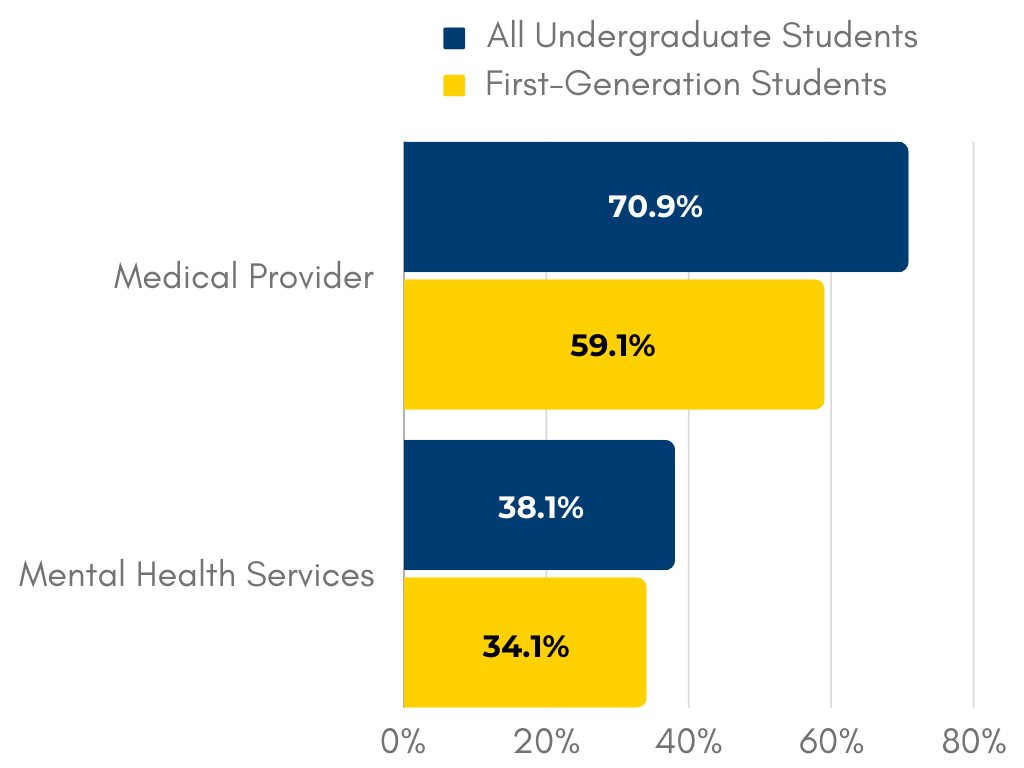Zoe Black
Areas of Specialty: Health Promotion, Health Equity, LGBTQ+ Support, Sexual Health
UHS Health Promotion Office

According to 2022 National College Health Assessment data, University of Rochester first-generation students reported visiting a medical provider and receiving psychological or mental health services at lower rates than the overall undergraduate population. This is consistent with national data as well.
To address this disparity, we hope that Well-being Ambassadors can connect first-generation students to on campus services available to them, such as UHS primary care, counseling, health promotion services, and more.
Every first-year, first-generation student will receive communication from one of our Well-being Ambassadors at the beginning of each semester during their first year at the University. These students are self-identified using data from their Health History Form. Ambassadors are available to answer questions from students via email or to meet briefly in person or virtually. Your Ambassador will be able to get you connected to the correct resource within UHS or elsewhere on campus, meaning that your relationship with your Ambassador will likely be more short-lived than that of the resource they connect you with.
Feel free to reach out to any of our Well-being Ambassadors with questions or concerns.
This is not a counseling or crisis service. If you are in need of immediate counseling or have safety concerns, contact the University Counseling Center at 585-275-3113 or Public Safety at 585-275-3333. Both are available 24 hours a day.
Areas of Specialty: Health Promotion, Health Equity, LGBTQ+ Support, Sexual Health
Areas of Specialty: Health Promotion, Mindfulness and Mental Wellness, Nourishment and Body Image, Sleep
Areas of Specialty: Insurance, Billing, Health History Forms, Immunizations
Areas of Specialty: Information Technology, General UHS Services
Areas of Specialty: Health Promotion, Mental Wellness, Connection to Nature
With questions about this program, please contact Zoe Black, Health Promotion Specialist for Health Equity.